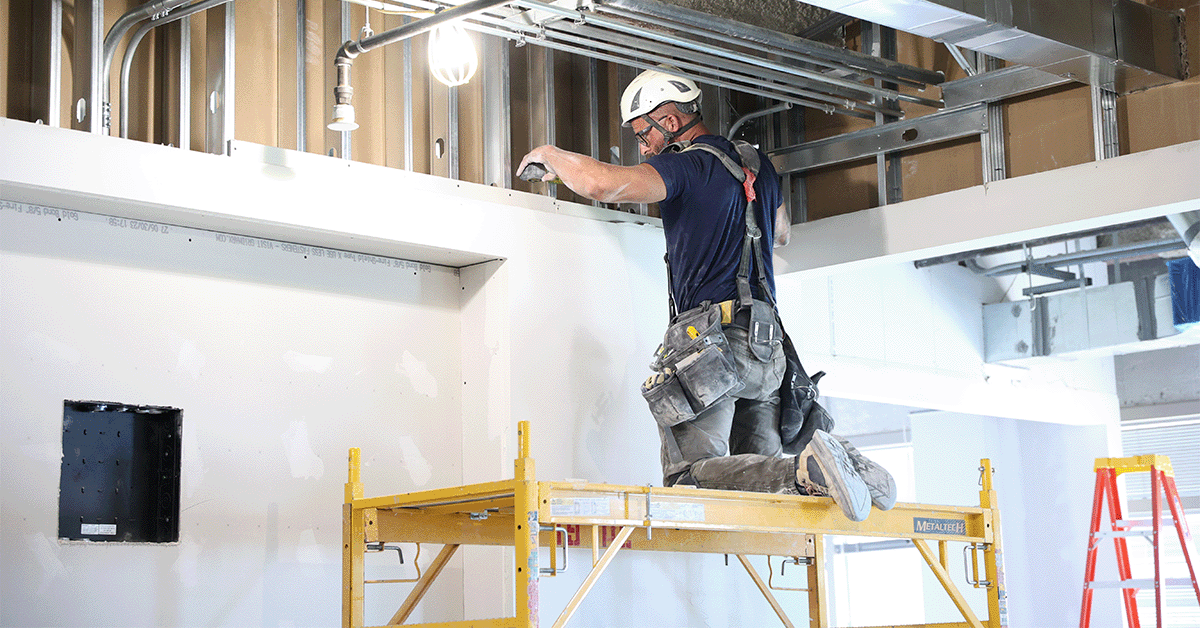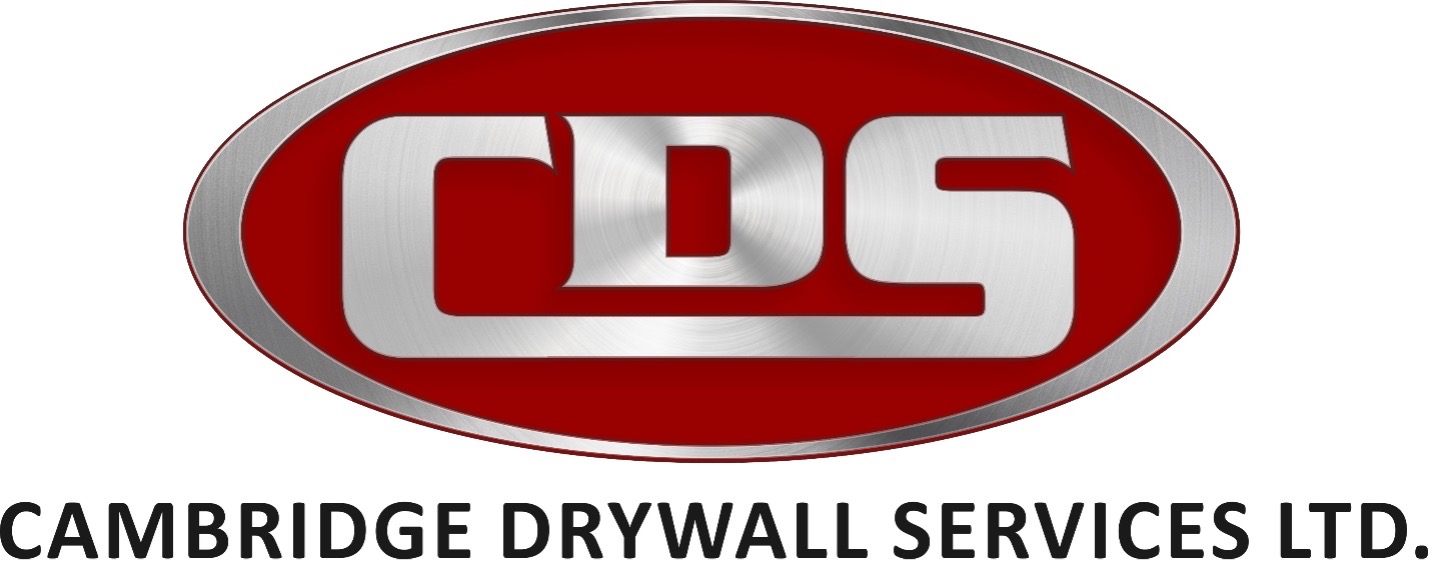
The Importance of Quality Assurance in Industrial Drywall Construction Projects
In industrial construction projects, drywall plays a vital role in shaping the structural integrity, safety, and functionality of the facility. Ensuring quality in drywall installation is not just about aesthetics—it directly impacts the building’s longevity, safety, and efficiency. This is where a strong focus on quality assurance (QA) becomes crucial. In an industry where tight timelines, large-scale operations, and complex requirements converge, robust QA processes help ensure the delivery of high-standard outcomes that meet both regulatory requirements and client expectations.
This blog highlights the importance of quality assurance in industrial drywall construction projects, focusing on the key benefits it brings to project success.
1. Ensuring Structural Integrity and Durability
One of the most critical aspects of drywall installation in industrial settings is ensuring that it contributes to the overall structural integrity of the building. Poor-quality drywall work can lead to weaknesses that affect both the building’s performance and safety. Cracking, misalignment, and improper jointing are common issues that arise from substandard drywall installations, which can compromise the entire structure.
Quality assurance processes involve regular inspections and verifications during each stage of installation to ensure that the drywall system is installed correctly and that materials used are appropriate for the specific environment. A strong QA process helps identify potential weaknesses early, ensuring that corrections are made before they escalate into larger, more costly problems.
2. Compliance with Safety Standards
Industrial construction projects are often subject to stringent safety standards, and drywall installation is no exception. In many cases, the drywall systems used must meet specific fire-resistance, moisture-resistance, or impact-resistance standards. Proper QA processes ensure that the right materials are selected and installed according to local and national building codes.
In industrial environments, where safety is paramount, ensuring compliance with fire safety regulations through the use of fire-rated drywall systems is particularly important. QA processes involve verifying that fire-rated drywall is installed in critical areas such as utility rooms, corridors, and stairwells, providing essential fire barriers that can help contain fires and save lives.
3. Reducing Costly Rework
One of the most significant advantages of a strong QA program in drywall construction is its ability to reduce the need for rework. Errors in drywall installation can be expensive, especially in large industrial projects. These mistakes may result in delays, additional labor costs, and increased material expenses, affecting the overall project budget and timeline.
By implementing a comprehensive QA program, potential issues are detected and addressed early in the process, minimizing the need for costly rework. Continuous inspections and quality checks help to ensure that every aspect of the drywall installation meets the required standards, reducing the risk of errors and subsequent rework.
4. Improving Efficiency and Productivity
In large-scale industrial construction projects, efficiency and productivity are essential to staying on schedule. Quality assurance processes not only prevent issues but also streamline the workflow. When workers know that there is a clear quality control system in place, it creates an environment of accountability and encourages adherence to best practices.
A focus on quality assurance also enables project managers to identify inefficiencies in real-time. By addressing these problems early, adjustments can be made that improve the overall efficiency of the drywall installation process, helping to keep the project on schedule without compromising on quality.
5. Maintaining Long-Term Performance
Industrial facilities often endure heavy use and exposure to challenging environmental conditions, such as high humidity, temperature fluctuations, and exposure to chemicals. The drywall systems installed in these environments must be built to withstand such conditions without deteriorating prematurely.
A strong QA process ensures that the drywall materials used are suitable for the specific environmental conditions of the facility. This includes selecting moisture-resistant drywall for humid areas or impact-resistant drywall for high-traffic areas. By using the correct materials and ensuring they are installed to the highest standards, QA helps maintain the long-term performance of the building, reducing the need for future repairs or replacements.
6. Client Satisfaction and Reputation
For contractors, maintaining a reputation for delivering high-quality work is essential in the competitive construction industry. Quality assurance processes ensure that every aspect of a drywall installation is completed to the client’s specifications, resulting in a finished product that meets or exceeds expectations.
In industrial projects, where the scale and complexity of the work can be significant, ensuring consistent quality can be a major selling point for clients. A strong QA program not only helps contractors deliver exceptional results but also builds trust with clients, increasing the likelihood of repeat business and positive referrals.
7. Mitigating Legal and Regulatory Risks
Non-compliance with building codes and safety standards can lead to serious legal and financial consequences for industrial construction projects. A robust quality assurance program mitigates these risks by ensuring that all drywall installations meet or exceed the regulatory requirements set forth by local authorities.
By documenting every step of the installation process and maintaining thorough records of inspections and tests, QA programs provide a layer of protection against potential legal issues. This level of diligence not only safeguards the project but also ensures the safety and well-being of everyone involved.
8. Sustainability and Environmental Responsibility
As more industries move toward sustainable building practices, quality assurance in drywall construction plays a critical role in achieving environmental goals. QA ensures that eco-friendly drywall materials, such as recycled drywall or materials with low volatile organic compound (VOC) emissions, are used where appropriate.
Additionally, QA processes help to minimize material waste, ensuring that drywall is measured, cut, and installed with precision. This not only supports the sustainability efforts of the project but also contributes to cost savings by reducing excess material usage.
Partner with Cambridge Drywall for High-Quality Industrial Drywall Solutions
At Cambridge Drywall, we understand the importance of quality assurance in every drywall construction project. Our commitment to excellence ensures that each project we undertake is completed with the highest level of precision, safety, and efficiency. Whether you’re working on a large industrial facility or a commercial space, our team is dedicated to delivering top-notch drywall solutions that stand the test of time.
Contact Us Today for Expert Drywall Services:
Phone: 519.624.1575
Email: info@cambridgedrywall.com
Visit our website: cambridgedrywall.com/contact
Let’s discuss how our quality assurance practices can help ensure the success of your next industrial drywall project!
